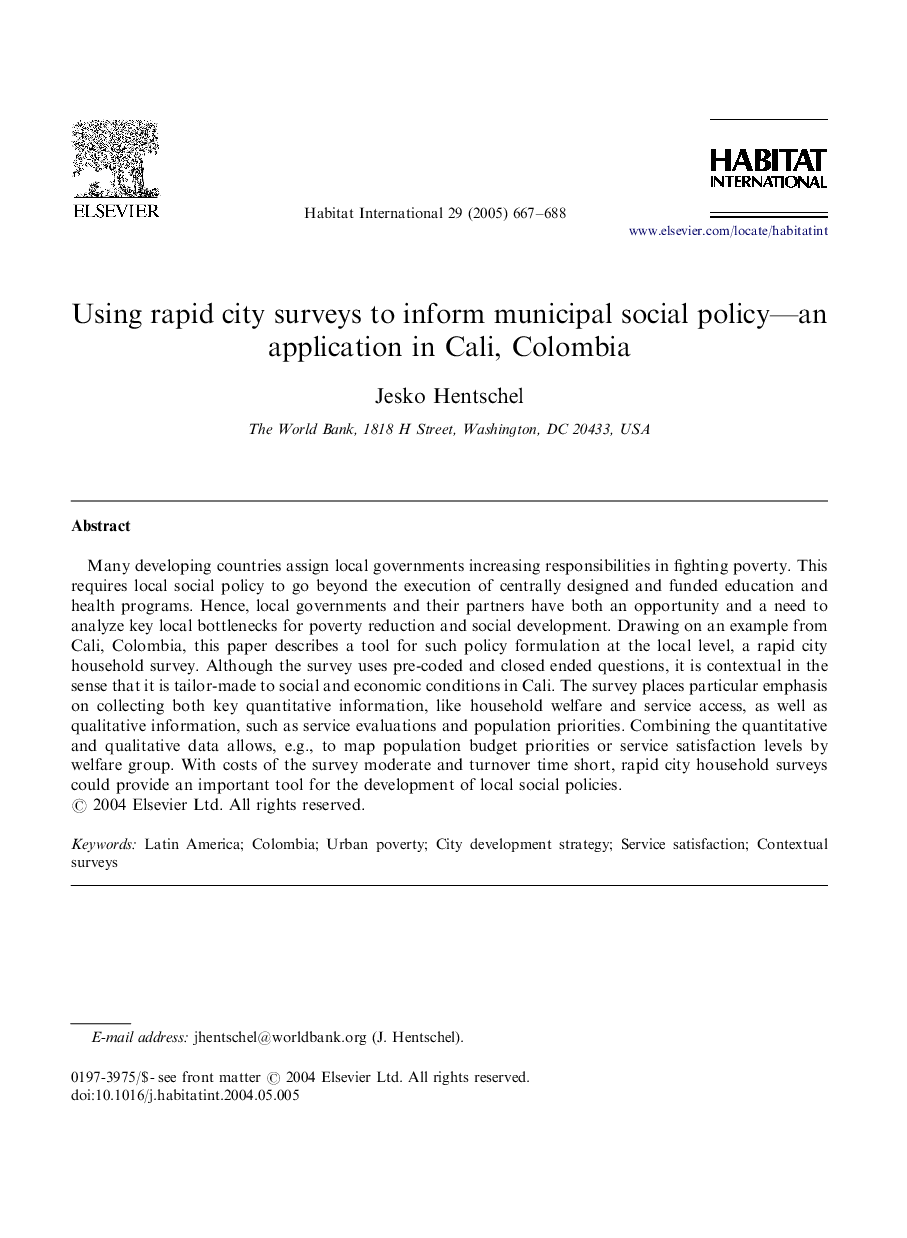| Article ID | Journal | Published Year | Pages | File Type |
|---|---|---|---|---|
| 10502380 | Habitat International | 2005 | 22 Pages |
Abstract
Many developing countries assign local governments increasing responsibilities in fighting poverty. This requires local social policy to go beyond the execution of centrally designed and funded education and health programs. Hence, local governments and their partners have both an opportunity and a need to analyze key local bottlenecks for poverty reduction and social development. Drawing on an example from Cali, Colombia, this paper describes a tool for such policy formulation at the local level, a rapid city household survey. Although the survey uses pre-coded and closed ended questions, it is contextual in the sense that it is tailor-made to social and economic conditions in Cali. The survey places particular emphasis on collecting both key quantitative information, like household welfare and service access, as well as qualitative information, such as service evaluations and population priorities. Combining the quantitative and qualitative data allows, e.g., to map population budget priorities or service satisfaction levels by welfare group. With costs of the survey moderate and turnover time short, rapid city household surveys could provide an important tool for the development of local social policies.
Related Topics
Social Sciences and Humanities
Social Sciences
Development
Authors
Jesko Hentschel,
